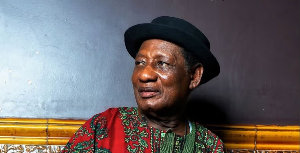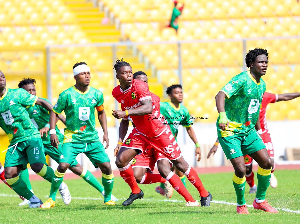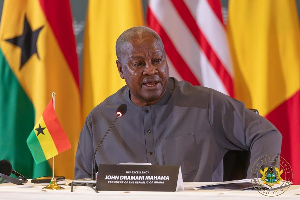Education has always been the backbone of our development as a nation. To make it one of the priority areas in a manifesto is something that needs commendation. Education has proven to be the most effective brigde in closing the gap between the rich and the poor, and requires all the seriousness it deserve.
This notwithstanding, some people including the NDC, have ridiculed, and continue to downplay the level commitment attached to it by the current administration.
President Akufo-Addo promised free Senior High School (S.H.S.) and some people had issues with it simply because in their thinking, it could either not be done or simply did not see the need for it.
For them, one of the difficulties with the programme was how it was going to be financed.
However, Policies of such magnitude require a leader with vision and courage to implement.
For the NPP and it's leader, Nana Akufo-Addo, the intention of implementing such an ambitious programme was not an act of showmanship to please critics but to among others, offer opportunity to every Ghanaian child of school going age, especially the poor who most often are unable to afford secondary education.
Beyond offering such opportunity to all, one of the cardinal imperatives of the programme is to lower the high levels of illiteracy in our society.
In September 2017, the free SHS policy was introduced but was met with a lot of criticisms.
The arguments put forward by these critics mainly led by the NDC was that such a programme of action must be carried progressively.
They further argued that going the full throttle with the implementation could hinder the quality of education delivery in the country.
In spite of the tough opposition, the government left no stone unturned and implemented it.
Since the introduction, the free SHS apart from doing away with all forms of fees and levies, has also offered additional benefits to the children.
For instance, distribution textbooks, exercise and note books, school uniforms, sandals, food for day students are all part of the programme.
The policy and how it has been implemented so far has engendered confidence in many and has attracted other African countries to also adopt similar programmes in their jurisdictions.
The United Nations has commended Ghana for at least, taking the bold initiative to actualise one of its Sustainable Development Goals which has to do with free, quality and equitable primary and secondary education for relevant and effective learning outcomes.
Since the implementation of the policy, more than 358,000 additional students have been roped into secondary education constituting an improvement of 75% in enrollment.
As an American polymath and one of the founding fathers of the United States once said, "an investment in knowledge pays the best interest".
The bold step taken by President Akufo-Addo will soon yield good fruits and Ghana shall prosper.
On the 22nd of August 2020, the NPP presented its Manifesto to the good people of Ghana and many have described it as national in character.
In view of how their 2016 manifesto has delivered great results, it is hoped that that their 2020 manifesto will further improve and make the education promise a reality.
Since the party is the originator of the flagship free SHS programme, they definitely have the competence to correct challenges encountered so far and consolidate it with the new programmes in their 2020 manifesto.
The decision to include technical and vocational education in the policy makes it complete at the secondary level.
An economy with the right fundamentals and the right policy, makes its citizens happy and free to engage in various businesses especially if you are a student in a well structured economy.
Aa part of its transformation in the educational sector, the NPP has stated that all students will be able to access students loan outside the guarantor system which currently prevail if only the student has the GHANA CARD or a TIN.
Once again, the announcement of such policy has set tongues wagging with some describing it as impossible.
But the basis for using such identity cards integrated into our national database, makes the idea feasible.
This is supported by the attempt to digitise the economy by this government which has been advocated and actualised by the able Vice President Dr. Mahamud Bawumia.
The process also affords students the opportunity to defer the loan payment for a year in order to get more space to pay back the loan to the trust fund.
As part of measures to make our education better at all levels, and to improve the quality, the NPP government when given the mandate intends to inject a total of US$219million into the Ghana Accountability for Learning Outcomes Program(GALOP) to improve the quality of education in low performing basic schools.
This policy is looking at strengthening teaching and learning outcomes through providing support and additional resources to teachers.
It seeks to strengthen school management and accountability systems for learning as well as providing technical assistance, institutional strengthening, monitoring and research.
The policy when implemented will be looking at increasing the percentage of targeted low performing schools and supporting them with teaching practice, meeting the teaching standard by which students will benefit from direct intervention to enhance learning.
There will also be increased percentage of KG and primary schools with pupils to teacher ratio of below 50:1.
It is evident that economic growth and development have a positive correlation with the quality of basic education which acts as the conerstone of economic development.
This policy makes all educational institutions parallel offering a level playing field for all.
Opinions of Sunday, 30 August 2020
Columnist: Chineseman, Osei and GuyGee (COG)
Consolidating the gains of Akufo-Addo, the education perspective
Entertainment














